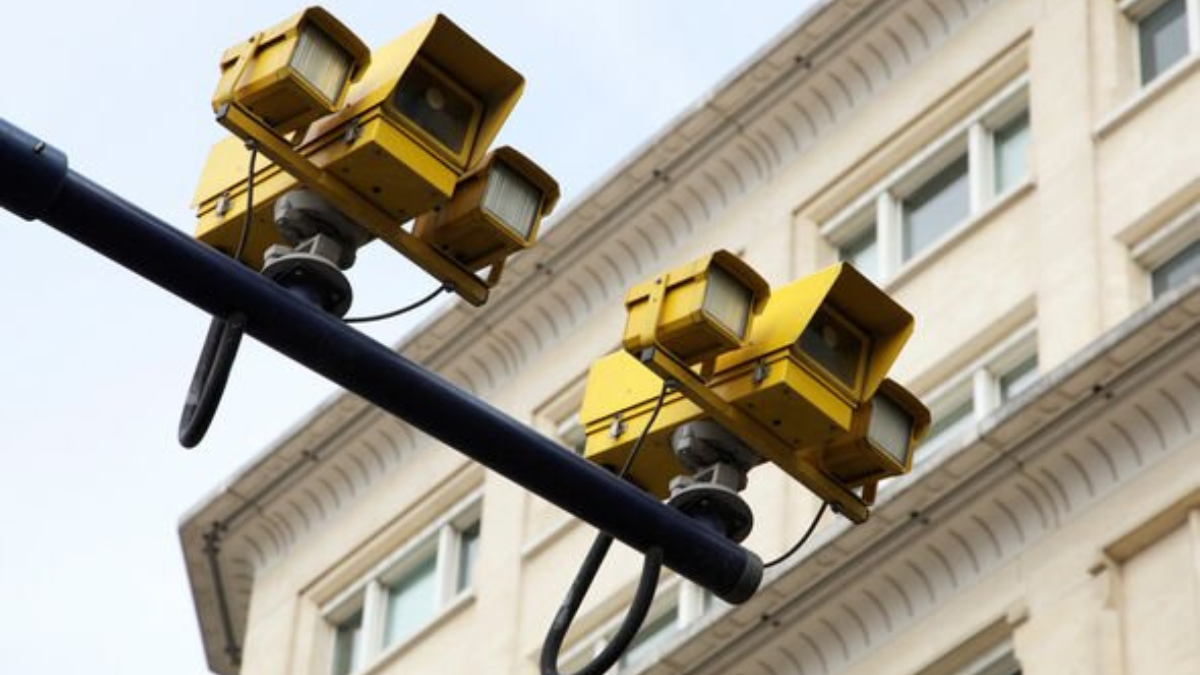Speed cameras are becoming an essential tool in Iowa’s strategy to promote safer driving and reduce speeding violations. These automated devices capture images of vehicles exceeding the speed limit, leading to fines and penalties for drivers.
If you frequently drive through Iowa, knowing where these speed cameras are located and how they function can help you avoid unnecessary tickets and ensure compliance with traffic laws.
How Speed Cameras Work
Speed cameras use radar or laser technology to detect a vehicle’s speed. If a vehicle is recorded traveling above the posted speed limit, the system automatically captures an image of the vehicle’s license plate. The registered owner then receives a citation in the mail with details of the violation, including the time, location, and recorded speed.
Unlike traditional traffic enforcement, speed cameras operate around the clock without requiring a police officer to be present. This allows for continuous monitoring, especially in high-risk areas prone to speeding-related accidents.
Locations of Speed Cameras in Iowa
Several Iowa cities use speed cameras to enforce traffic laws. Below are key locations where these cameras are actively monitoring drivers:
1. Des Moines
Des Moines has installed speed cameras in areas with heavy traffic and frequent speeding violations. Notable locations include:
- Interstate 235: A major highway where cameras track speed compliance.
- University Avenue: A high-traffic road with frequent enforcement.
2. Cedar Rapids
Cedar Rapids has one of Iowa’s most extensive speed camera programs. Key enforcement areas include:
- Interstate 380: Several cameras are in place to monitor speeders on this critical highway.
- First Avenue: A busy roadway where speed limits are strictly enforced.
3. Davenport
Davenport utilizes speed cameras to address traffic safety concerns. Common locations include:
- Brady Street: An area known for speeding-related incidents.
- Welcome Way: A stretch where speed violations are frequently recorded.
4. Sioux City
Sioux City has implemented speed camera enforcement in strategic locations such as:
- Interstate 29: A vital transportation corridor monitored for excessive speed.
- Gordon Drive: Another key area targeted by speed enforcement.
5. Council Bluffs
Council Bluffs uses speed cameras to reduce traffic violations in high-risk areas, including:
- Broadway Avenue: A heavily trafficked road with speed monitoring.
- Interstate 80: A major interstate with active speed enforcement.
What to Do If You Receive a Speed Camera Ticket
If you receive a speed camera citation in Iowa, here’s what you need to do:
1. Review the Citation Carefully
Verify the details, including the date, time, location, and recorded speed. If any information appears incorrect, you may have grounds to dispute the ticket.
2. Understand the Fine and Penalty
Speed camera fines vary by city and the severity of the violation. Unlike traditional speeding tickets, these citations typically do not add points to your driver’s license but still come with financial penalties.
3. Consider Contesting the Ticket
If you believe the ticket was issued in error, follow the instructions on the citation notice to dispute it. This may involve submitting an appeal or requesting a hearing.
4. Pay the Fine Promptly
If you decide not to contest the ticket, paying the fine before the due date can help avoid additional penalties or legal complications.
Tips to Avoid Speed Camera Tickets
Avoiding speed camera tickets in Iowa is simple if you follow these best practices:
1. Obey Speed Limits
Adhering to posted speed limits is the most effective way to avoid citations and contribute to road safety.
2. Use GPS and Speed Camera Alerts
Many GPS systems and mobile apps offer real-time alerts about speed cameras, helping drivers remain aware of enforcement zones.
3. Stay Updated on Speed Camera Locations
Checking local news and city websites can keep you informed about where speed cameras are installed.
4. Drive Cautiously in High-Risk Areas
Speed cameras are often placed in areas with high accident rates. Exercising extra caution in these zones can prevent violations.
Why Speed Cameras Are Controversial
Although speed cameras are designed to enhance traffic safety, they have sparked debates among drivers and lawmakers. Some of the key points of controversy include:
1. Revenue Generation vs. Safety
Critics argue that speed cameras are more focused on generating revenue through fines rather than improving road safety. However, city officials claim that the primary goal is reducing traffic-related injuries and fatalities.
2. Accuracy and Fairness
There have been cases where speed cameras have issued citations incorrectly due to faulty readings or system errors. This has led some drivers to question the reliability of automated enforcement.
3. Lack of Officer Discretion
Unlike traditional speeding stops where an officer can use discretion, speed cameras issue tickets automatically without considering factors like emergency situations or temporary speeding to avoid hazards.
4. Legal Challenges
Some drivers and advocacy groups have challenged the legality of speed cameras, arguing that automated enforcement may violate due process rights. In some states, legal action has led to changes or restrictions in speed camera use.
Final Thoughts
Iowa’s speed cameras play a crucial role in enforcing traffic laws and promoting safer roads. By staying aware of their locations and following posted speed limits, drivers can avoid costly fines while contributing to safer communities.
If you want to learn more about Iowa’s speed enforcement policies and regulations, visit the Iowa Department of Transportation.
Disclaimer – Our team has carefully fact-checked this article to make sure it’s accurate and free from any misinformation. We’re dedicated to keeping our content honest and reliable for our readers.
